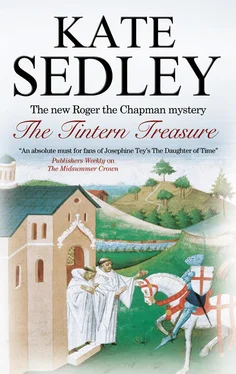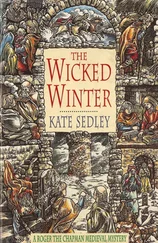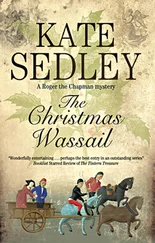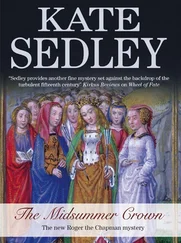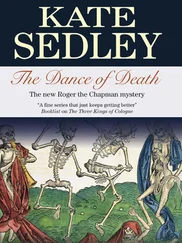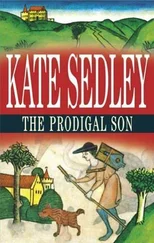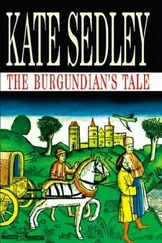Kate Sedley - The Tintern Treasure
Здесь есть возможность читать онлайн «Kate Sedley - The Tintern Treasure» весь текст электронной книги совершенно бесплатно (целиком полную версию без сокращений). В некоторых случаях можно слушать аудио, скачать через торрент в формате fb2 и присутствует краткое содержание. Жанр: Исторический детектив, на английском языке. Описание произведения, (предисловие) а так же отзывы посетителей доступны на портале библиотеки ЛибКат.
- Название:The Tintern Treasure
- Автор:
- Жанр:
- Год:неизвестен
- ISBN:нет данных
- Рейтинг книги:4 / 5. Голосов: 1
-
Избранное:Добавить в избранное
- Отзывы:
-
Ваша оценка:
- 80
- 1
- 2
- 3
- 4
- 5
The Tintern Treasure: краткое содержание, описание и аннотация
Предлагаем к чтению аннотацию, описание, краткое содержание или предисловие (зависит от того, что написал сам автор книги «The Tintern Treasure»). Если вы не нашли необходимую информацию о книге — напишите в комментариях, мы постараемся отыскать её.
The Tintern Treasure — читать онлайн бесплатно полную книгу (весь текст) целиком
Ниже представлен текст книги, разбитый по страницам. Система сохранения места последней прочитанной страницы, позволяет с удобством читать онлайн бесплатно книгу «The Tintern Treasure», без необходимости каждый раз заново искать на чём Вы остановились. Поставьте закладку, и сможете в любой момент перейти на страницу, на которой закончили чтение.
Интервал:
Закладка:
He began by claiming that he didn’t know where the papers were: no one had asked to look at them for as long as he could remember and he had no idea where they were filed. I stared him down and repeated, mendaciously, that the lord abbot had promised me a sight of them, managing to convey that his superior would be extremely displeased if my desire were thwarted. So finally, after much grumbling under his breath and a token search, Brother Librarian produced the necessary papers with comparative ease from one of the lower shelves. They were enclosed in a cover bound with purple silk which he dropped on to one of the reading stalls, standing in a line along one wall.
‘There you are, then,’ he snapped ungraciously. ‘Just be careful how you handle them, that’s all I can say. They’re over a century and a half old, and fragile.’ He advanced his tight, weasel-like little face to within an inch of mine. ‘I don’t suppose you’ve ever heard of Richard de Bury?’ he sneered.
Not for the first time in my life, I blessed the teaching and knowledge of Brother Hilarion, our Novice Master at Glastonbury, and the endless trouble he had taken to hammer that knowledge into our unreceptive heads. ‘Bishop of Durham, sometime Chancellor and close friend of King Edward III in the last century,’ I answered with a smirk.
‘Oh.’ For a moment my interlocutor was nonplussed, but he soon made a recovery. ‘He was also,’ he went on, ‘one of the greatest bibliophiles this country has ever known, and he wrote a treatise on the disgusting way in which people handle books. Ever read it?’
‘No,’ I said foolishly — but consoled myself with the reflection that even had I answered, ‘Yes,’ he would still have told me what it said. He was one of those who, once he was riding his hobby-horse, there was no way of stopping.
‘Richard de Bury complains’ — and the little man spoke as one who had learned the passage by heart — ‘about the abuser of books who underlines favourite passages with his dirty nails, who marks his place with straws because his memory is poor, who stains the parchment with fruit and wine, who drops into the open pages crumbs of bread and cheese and other such victuals, who falls asleep over his book and in so doing creases the leaves, who turns back the corners of pages and presses wild flowers between them with his sweaty hands, who marks the vellum with soiled gloves and who, finally, flings aside the sacred object so that its leaves are splayed and will no more shut.’ Brother Librarian finished, breathless, on a triumphant shout, an admonitory finger waggling beneath my nose. ‘I trust,’ he added, a gleam of hatred for the despised reader in his eye, ‘that you are not one of those!’
‘No, no!’ I assured him hastily and sat down in the reading stall, spreading out the pages of the account books and diary in front of me.
At last he seemed to take the hint that I wished to be left alone and, still muttering under his breath, moved away to busy himself elsewhere.
The pages I had before me were written on neither vellum nor parchment, but on a cheap paper made of rags. Those belonging to the two account books were the most numerous and, as Father Abbot had warned me, of very little interest except, perhaps, to the abbey’s present manciple as an indication of what was being ordered a hundred and fifty years ago, and for the date. This latter was repeated twice, in Roman numerals, as 1326, which suggested that the pages of the diary were possibly written about the same time. Not necessarily, I reminded myself, but probably.
I turned to them eagerly and was disappointed to see that there really was little more than a page and a half of black, spidery, very upright writing, very difficult to read. This was not the fault of the ink which had retained its colour after all those years and was still beautifully vivid. I wondered if it had been made from blackthorn bark or oak galls, or to one of the abbey’s secret recipes. (Most religious establishments had their own, which they zealously guarded.) It certainly wasn’t thickened blackberry juice mixed with blood, which faded early.
I applied my mind to deciphering the narrative. This wasn’t easy, the writing being extremely uneven and the style discursive. Almost all the first page was devoted, as the abbot had said, to squabbles amongst the brothers, with particular attention being paid to the disagreement between a certain Brother Barnabas and another named Philip. What it was about, I couldn’t have told you even ten minutes later, so rapidly did I skip the lines, searching eagerly for the incident of the strangers’ arrival.
I came to it at last at the top of the second page. ‘“They came last night as we had feared they might, having had warning that they were close by. Two others were with them; Reading, I think, and Baldock were the names, but I cannot be sure. We had begged Father Abbot not to give them sanctuary; their crime is too great, but he ignored our wishes. Perhaps he was afraid to do otherwise. It seems they will stay here again tonight, but after that Father Abbot has assured us they will be gone. God have mercy on their souls. They will need it.”’
This, disappointingly, was all on that head, and for the next twenty or so lines, the writer returned to the feud between Brothers Philip and Barnabas until breaking off mid-sentence and leaving the rest of the page blank. What had happened to make him stop writing so abruptly it was impossible to say with any certainty after a century and a half; but if I was forced to hazard a guess it would be that someone had snatched the paper from him to stuff into the abbot’s secret hiding place, along with pages torn from the account books. He had probably protested violently, but if his fellow monks suspected that he wrote about them in his diary, someone must have borne him a grudge and taken malicious pleasure in frustrating him.
But that was just idle speculation and not the riddle that was teasing me. I stared down at the black lettering thoughtfully. The longer I considered the problem, the more I felt convinced that whatever our thief had stolen tonight, whatever it was that had lain concealed in the hiding place for so long, had been brought by the strangers that night a hundred and fifty-odd years ago. It had been hidden for them by the abbot and walled in, the papers then being placed in the remaining space and the tiles of the hearth replaced. Had the strangers intended to return for what they had left? I thought it more than likely, but something had prevented them. Imprisonment? Death? The diarist had spoken of them and their crimes with revulsion, so either was probable if the law had eventually caught up with them and exacted reparation. Their treasure, whatever it was, had lain buried and forgotten as the long progression of years went by and those who had placed it there had died. Indeed, knowledge of the hiding place itself had been lost until its accidental discovery fourteen years earlier.
So far, so good. Exactly why the abbot of the time had agreed, not only to give sanctuary to four criminals for two nights but also to keep their treasure for them was beyond my comprehension, but indisputable. And it was impossible that I should discover the reason now, so there was little point in agonizing over it. What did exercise my mind was the fact that this treasure had suddenly been rediscovered and stolen at the very time that Gilbert Foliot had been talking to the abbot on the subject of its hiding place. Coincidence, one might say. But I have never liked coincidences. All right, so they do happen or, as I have remarked somewhere else in these chronicles, there wouldn’t be a word for them. I still don’t like them.
But if there was a connection between the two events, I had to admit that I had no inkling what it was.
Читать дальшеИнтервал:
Закладка:
Похожие книги на «The Tintern Treasure»
Представляем Вашему вниманию похожие книги на «The Tintern Treasure» списком для выбора. Мы отобрали схожую по названию и смыслу литературу в надежде предоставить читателям больше вариантов отыскать новые, интересные, ещё непрочитанные произведения.
Обсуждение, отзывы о книге «The Tintern Treasure» и просто собственные мнения читателей. Оставьте ваши комментарии, напишите, что Вы думаете о произведении, его смысле или главных героях. Укажите что конкретно понравилось, а что нет, и почему Вы так считаете.
